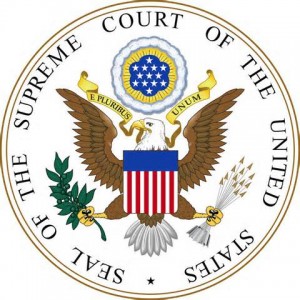Yesterday, the United States Supreme Court ruled in favor of the closely held corporation, Hobby Lobby, holding that the Department of Health and Human Services’ (HHS) regulations imposing the contraceptive mandate violated the Religious Freedom and Restoration Act of 1993 (RFRA). It further held that RFRA applies to regulations which govern the activities of closely held for-profit corporations, like Hobby Lobby.
In the matter of Burwell v. Hobby Lobby (together with Conestoga Wood Specialties Corporation, et al. v. Sylvia Burwell, Secretary of Health and Human Services, et al), closely held corporations sued HHS and other federal officials collectively under the RFRA and the Free Exercise Clause. They sought to be exempted from the HHS regulations under the Patient Protection and Affordable Care Act of 2010, which requires specified employers’ group health plans to furnish “preventative care and screenings” for women without “any cost sharing requirements.” (42. U.S.C. §300gg-13(a)(4)). Congress did not specify what those “preventative care and screenings” would be and left that up to HHS to decide. Generally, nonexempt employers are required to provide coverage for the 20 contraceptive methods approved by the Food and Drug Administration, including the four that may have the effect of preventing an already fertilized egg from developing further. Although religious employers (i.e. churches) were exempt from this contraceptive mandate, closely-held for profit corporations were not. The owners of Hobby Lobby held the sincere Christian belief that life begins at conception and that furnishing any contraceptive drugs or devices that operate after that point would violate their religious beliefs.
In a split decision of 5 to 4, Supreme Court held: “In holding that the HHS mandate is unlawful, we reject HHS’s argument that the owners of the companies forfeited all RFRA protection when they decided to organize their businesses as corporations rather than sole proprietorships or general partnerships. The plain terms of RFRA make it perfectly clear that Congress did not discriminate in this way against men and women who wish to run their businesses as for-profit corporations in the manner required by their religious beliefs. Since RFRA applies in these cases, we must decide whether the challenged HHS regulations substantially burden the exercise of religion, and we hold that they do. The owners of the businesses have religious objections to abortion, and according to their religious beliefs the four contraceptive methods at issue are abortifacients. If the owners comply with the HHS mandate, they believe they will be facilitating abortions, and if they do not comply, they will pay a very heavy price – as much as $1.3 million per day, or about $475 million per year, in the case of one of the companies. If these consequences do not amount to a substantial burden, it is hard to see what would.”
It is interesting to note that none of the female Supreme Court Justices ruled with the majority. The dissenting opinion, written by Justice Ginsburg, expresses a concern for the “startling breadth” of this opinion. She went on to write: “… the Court holds that commercial enterprises, including corporations along with partnerships and sole proprietorships, can opt out of any law (saving only tax laws) they judge incompatible with their sincerely held religious beliefs.”
You can view the entirety of the majority and dissenting opinions here: http://www.supremecourt.gov/opinions/13pdf/13-354_olp1.pdf


